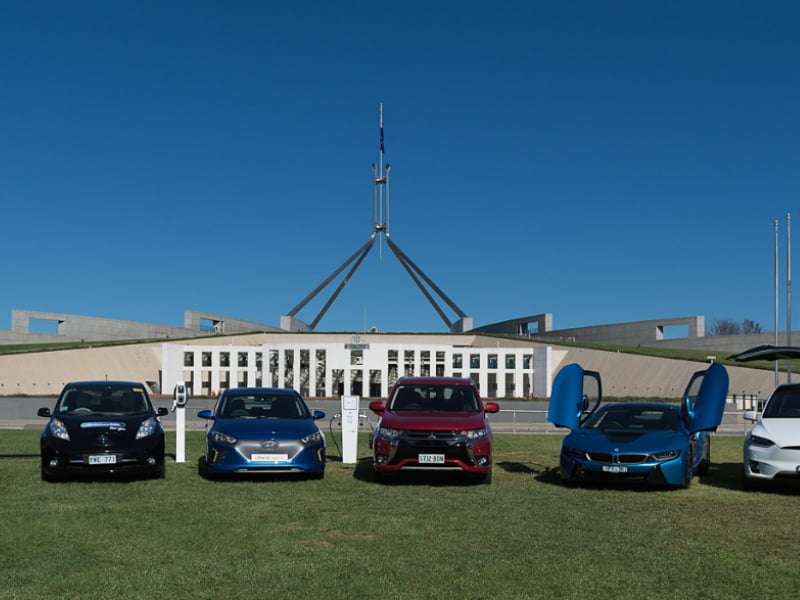Kim Carr has doubled down on Labor’s support for the local electric vehicles sector, announcing a $57 million pledge to help build a new local automotive industry centred on technology and research and development.
If Labor wins the election on May, the funding would go towards Labor’s electric vehicle manufacturing and innovation strategy that aims to “grow the jobs and companies of the transport future”.
A big chunk of the cash – $30 million – would focus on increasing Australia’s role in electric vehicle R&D through the Advanced Engineering and Electric Mobility Research and Development initiative.

A further $25 million would go towards grant funding for research, commercialisation and enterprise capability development in vehicle electrification for the local components sector, and to the research sector.
Shadow industry minister Kim Carr said with the right policies in place, there was the potential for large-scale job creation in the electric vehicles industry in this country.
“We have an enormous opportunity, which was highlighted in the recent senate report, to attract new investment and new employment in electric and hydrogen vehicles, by either making full vehicles or component parts for vehicles,” Senator Carr told InnovationAus.com.
“On the basis of the independent modelling by the Australian Institute there are 30,000 jobs on the line here. These are high quality, high skilled blue collar jobs.”
The jobs created through this push will include software engineering and other digital-focused roles, he said.
Labor has said that much of the automotive supply chain has still remained in Australia despite the decline of the industry, and can be “rebuilt to service the new EV and component manufacturing industry”.
The Opposition pointed to Nissan manufacturing parts for its fully electric car, Leaf, in Melbourne, Bosch building recharging infrastructure in Melbourne, and Brisbane playing home to a world-leading manufacturer of charging stations as the “green shoots” of the industry in Australia.
It also said that the Liberals had “goaded the major car manufacturers to leave Australia”.
But Industry Minister Karen Andrews hit back at this claims, saying the car industry in Australia had been doomed during Senator Carr’s last stint as Industry minister.
“Kim Carr and Labor like to blame others for the closure of auto manufacturers in Australia but the fact is the fate of Australian auto production was already sealed when Senator Carr himself was industry minister,” Ms Andrews said.
“Labor makes grand promises that are never delivered, and Aussie taxpayers are left to pay for it. Labor’s history on manufacturing speaks for itself, under the last Labor government one in eight manufacturing jobs were lost.”
The remaining $2 million of Labor’s $57 million commitment has been set aside for the establishment and running of a sodium-ion battery manufacturing plant in Geelong, in collaboration with Deakin University.
The Opposition also committed to help local companies create design and manufacturing jobs in electric and hydrogen automotive plants. It would appoint a Supplier Advocate to coordinate the overall transition plan, and give spending preference to suppliers developing design, R&D and EV capabilities.
“It’s about using the best science to help develop the technologies to push down the prices for EVs and to set the standards to make the new vehicles and the powering systems safer. It’s about providing support for research, design and manufacturing,” Senator Carr said.
“There are opportunities to be part of a global automotive industry if we have the right policy settings.”
An Electric Vehicle Innovation Council, compromising industry, unions, government and researchers, would be formed to develop a national electric vehicles innovation roadmap and to map out the broader supply chain.
The strategy wpuld focus on electric vehicle charging equipment assembly, component manufacture, design, engineering and research. The Opposition pointed to electric vehicle manufacturing already occurring in Australia as evidence that the industry has a start locally.
The announcement follows Labor’s National Electric Vehicles policy package which was unveiled in early April. The centrepiece of the package was a electric vehicles target of 50 per cent of all new care sales by 2030, along with a 50 per cent target for the government fleet by 2025 and tax deductions for businesses purchasing electric vehicles.
“You have to be able to embrace the future and not be in fear of the future and the contrast between Labor and the Liberals is that we want to actually provide a bridge to the future, and having the best science to develop the best technologies to push the prices downward, to set the standards and to make sure the technology is safe and fit for purpose.”
The Morrison government has committed to develop an electric vehicles strategy that would “ensure a planned and managed transition to new vehicle technology and infrastructure so all Australians can reap the benefits”. This would be completed in mid-2020 if the Coalition wins the upcoming election.
Do you know more? Contact James Riley via Email.

